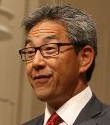By Bob Allen
More than 80 Asian-American Christians have signed an open letter to evangelicals calling for an end to racial stereotyping of Asians in religious literature.
Christian leaders including Ken Fong, a California Baptist pastor who spoke at the 2011 New Baptist Covenant II gatherings telecast from Atlanta, criticized evangelicals for “repeated and offensive racial stereotyping” of Asians over the past decade.
Examples include the Southern Baptist Convention’s 2004 Asian-themed vacation Bible school material “Rickshaw Rally,” criticized for using stereotypical “Oriental” images of rickshaws, chopsticks and Chinese takeout boxes to teach children lessons about the gospel.
Recently Rick Warren, a Southern Baptist mega-church pastor and author of the Purpose-Driven Life, apologized for using a Facebook photo depicting a Red Guard during China’s Cultural Revolution in a light-hearted way that Asian-American bloggers found distasteful.
In 2007 Zondervan, one of the nation’s largest Christian publishers, apologized and revised a skit set in a Chinese restaurant that critics called “unquestionably racist.” Two years later, Zondervan apologized for publishing a trade book titled Deadly Viper: A Kung Fu Survival Guide for Life and Leadership, using Chinese characters and images for illustrations.
Most recently, Exponential, a major Christian conference held Oct. 7-8 in Los Angeles, angered Asian-Americans with a parody based on the film Karate Kid with a white person mimicking Asian accents and Kung-Fu fighting.
A group called Asian-American Christians United said in An Open Letter to the Evangelical Church that such poor judgment and racial stereotyping “has to stop.”
“We highly value the concept of family, and it deeply distresses us when our non-Asian brothers and sisters do not seem to recognize or embrace that we are called to be one united body,” the letter said. “We are in your churches, your communities, your workplaces. Whenever you marginalize, ostracize, or demean us through carelessness and ignorance in print, video, or any other medium, you are doing more than just ruffling the feathers of a small group of online activists. You are damaging the very cause of Christ, by maintaining and increasing fissures within the church.
“You are furthering the exact opposite of what it means to be the church, which is to reflect Christ and his love through the power of a reconciled body. And you are creating an environment that will not only disillusion current Asian-American Christians within the church body, but also repel Asian-Americans who do not know Christ and who do not see him represented in the actions of those who call themselves Christian.”
 Signers including Fong, senior pastor of Evergreen Baptist Church of Los Angeles and executive director of the Asian American Initiative at Fuller Seminary, and Hong Kong Baptist University professor Sam Tsang said most of the progress toward racial reconciliation in churches has focused primarily on black-white relations, while “the Asian-American segment of the church continues to be misunderstood, misrepresented, and misjudged.”
Signers including Fong, senior pastor of Evergreen Baptist Church of Los Angeles and executive director of the Asian American Initiative at Fuller Seminary, and Hong Kong Baptist University professor Sam Tsang said most of the progress toward racial reconciliation in churches has focused primarily on black-white relations, while “the Asian-American segment of the church continues to be misunderstood, misrepresented, and misjudged.”
They called for a public forum to discuss ongoing incidents of racial stereotyping, assessing hiring practices for whether they exclude Asian-Americans, and for a higher standard of evaluating media and public content to “respectfully reflect Asian-American culture.”
The letter writers said in addressing incidents of cultural insensitivity they see a tendency among white Christians to point out that they know many Asian-Americans who were not offended by their actions and that any Asian-American who is upset is being overly sensitive.
When LifeWay Christian Resources of the Southern Baptist Convention received pushback for using stereotypes like rickshaw races, kimonos, chopsticks, takeout boxes and karate uniforms, then-President Jimmy Draper argued in a point-counterpoint in the Florida Baptist Witness that he did not believe large numbers of Asian-Americans were offended by the theme.
“For every phone call, e-mail or letter we receive from Asian-Americans expressing concern about Racing to the Son, we get scores of positive responses,” Draper wrote. “The support is global in scope. Representatives of our international department just returned from Asia with glowing reports from Thailand, Singapore, Malaysia and Indonesia.”
More than 1,000 individuals signed an online petition asking LifeWay to withdraw the material using “images, phrases, music and various stereotypes and caricatures of the Asian community that are inaccurate and offensive.”
The Baptist Convention of New England decided not to promote the Asian-themed VBS material deemed “insensitive and … a poor representation of Asian culture.” State convention leaders in the Bible belt, meanwhile, praised the materials as some of the best that Southern Baptists had ever produced.
In response to the notion they are overly sensitive, the letter writers said: “We would like to know how many offended Asian-Americans it takes to catalyze cultural change? Is the list of signatories below enough?”
They challenged readers to “take a moment to notice the breadth and the depth of the individuals who have assented that they, too, are tired of continuing racial insensitivity in the church” and to “embrace the truth: the evangelical church in America needs a reality check to honestly assess how it relates with its Asian-American family members.”
